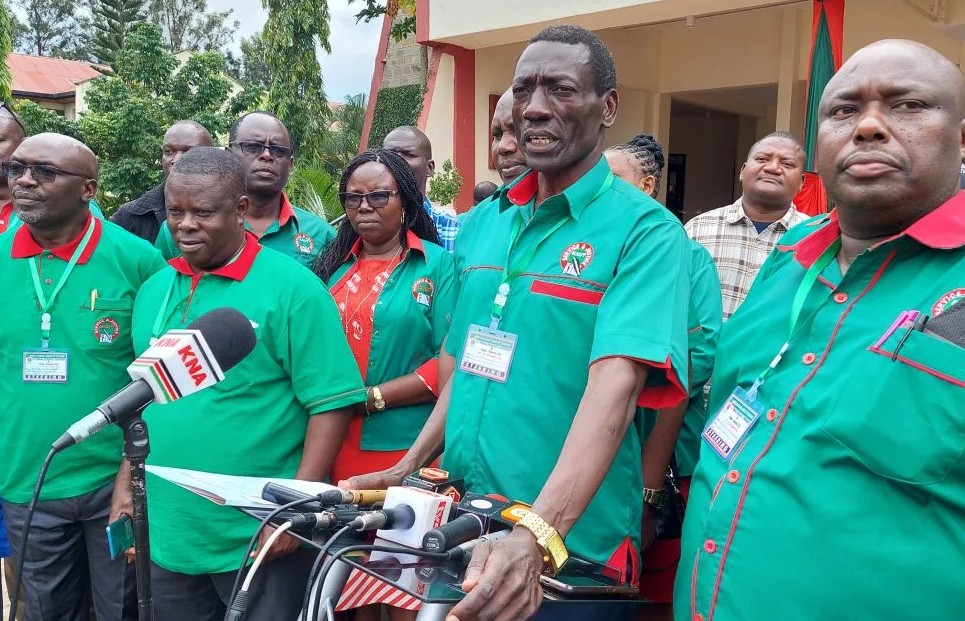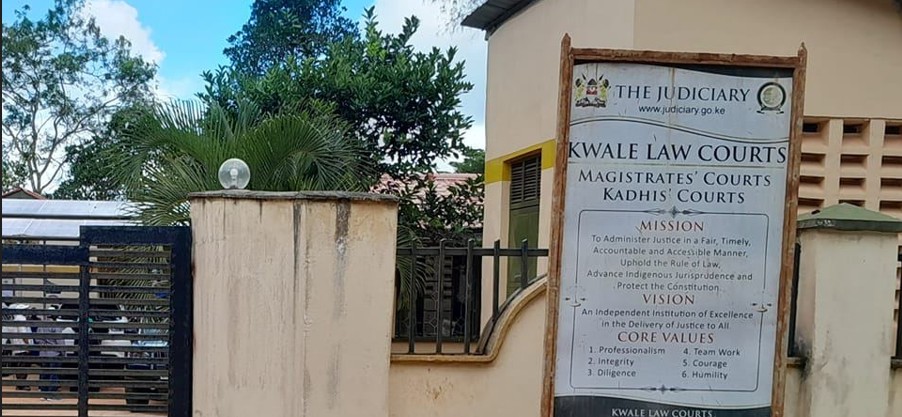Teachers unions reject govt plan to reclassify hardship areas without consultation

They have now called on the government to halt the implementation of the reclassification and engage with the relevant stakeholders before proceeding with any changes that could adversely impact teachers’ welfare.
Kenya National Union of Teachers (KNUT) and the Kenya Union of Special Needs Education Teachers (KUSNET) have opposed a government plan to reclassify hardship areas, warning that it could deprive thousands of teachers of vital allowances without proper consultation.
The backlash follows a revelation by Prime Cabinet Secretary Musalia Mudavadi that the government plans to implement a 2019 report aimed at rationalising hardship zones.
More To Read
- Teachers to stay in same schools after promotions under new TSC policy
- SHA transition sparks tension as teachers cite lack of consultation, legal violations
- TSC announces recruitment of 9,159 teachers nationwide
- Unions slam TSC over limited promotion slots as 131,000 teachers apply for 21,000 positions
- Museveni clarifies Indian Ocean comments after Kenya downplayed war talk
- Senators summon Mudavadi over harassment, detention and deaths of Kenyans abroad
The move is part of efforts to reduce public service payments from Sh25 billion to Sh19 billion annually, saving Sh6 billion in the process. Teachers, who represent the largest group of public servants, currently earn a hardship allowance of 30 per cent of their basic salary when posted to these designated areas.
However, both KNUT and KUSNET have criticised the sudden and abrupt nature of the plan, which they claim was only made public through media reports. The unions accuse the government of sidelining key stakeholders in a decision they say could significantly disrupt the education sector.
“This kind of action can be dangerous for employees. If a place has to be removed from hardship, that notice has to come in good time so that people can adjust,” KNUT Secretary-General Collins Oyuu said.
The proposed review threatens to strip teachers of their hardship allowances, which have served as an important incentive for public servants to accept postings in remote and often challenging areas. Oyuu emphasised the financial toll it could have on teachers, many of whom rely on this allowance to meet personal financial obligations.
“Most of our members are servicing loans, and if this allowance is what was cushioning them, then removing it is inhuman,” Oyuu said.
He added that while the issue had not yet been officially communicated to the unions, KNUT had called an internal committee meeting to discuss the matter.
KUSNET Secretary-General James Torome also strongly opposed the move, stressing that any changes to allowances for unionised members can only be reviewed through consultations between the union and the Teachers Service Commission (TSC).
“Any allowance on unionised members can only be reviewed by the two parties that signed the collective bargaining agreement—in this case, the union and TSC. Any other party is a stranger,” Torome said.
He further pointed out that the CBA is legally binding, registered and cannot be unilaterally altered. Torome warned that KUSNET had not been consulted about the proposal and vowed that if the government pushes forward with the reclassification plan, teachers would take to the streets.
“If they try to push this down our throats, they are inviting teachers to the streets,” he said, citing Article 41 of the Constitution, which guarantees fair labour practices.
Torome also revealed that an upward review of hardship allowances had been proposed in the union’s 2025–2029 CBA, the negotiations for which are yet to begin. He described the move to reduce the allowances as unfair, especially given the tough economic environment teachers are facing.
The unions warned that removing hardship allowances would undermine teacher morale, particularly in areas already struggling with teacher shortages and high attrition rates.
They have now called on the government to halt the implementation of the reclassification and engage with the relevant stakeholders before proceeding with any changes that could adversely impact teachers’ welfare.
Top Stories Today












































